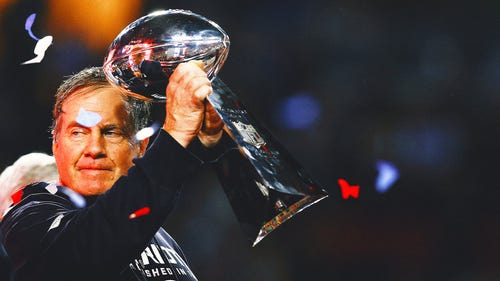
Selmon remembered as 'gentle giant'
Hall of Famer Lee Roy Selmon was remembered Friday as a ferocious football player whose gentleness and commitment to helping people off the field defined him as a man.
The 1979 NFL Defensive Player of the Year and former University of South Florida athletic director died last Sunday, two days after suffering a stroke at his home. He was 56.
''He was a man of great dignity, great humility, great humanity, and we will miss him,'' USF president Judy Genshaft told hundreds of friends, family and former teammates during a three-hour service at Idlewild Baptist Church. ''He set the standard, and now it is our turn to carry it forward.''
Selmon was the No. 1 pick in the 1976 draft, the first-ever player selected by the expansion Tampa Bay Buccaneers following a standout college career at Oklahoma, where he and older brother, Dewey, helped the Sooners win national championships in 1974 and 1975.
A second funeral will be held Saturday in Oklahoma City, near the small town of Eufaula, where Selmon was born.
''You grew to love him. Please know that he loved you just as much,'' Dewey, a second-round draft pick of the Bucs during the team's inaugural year, told a crowd that included the current roster of the Buccaneers, former Bucs Doug Williams, Derrick Brooks, Jimmie Giles, Hugh Green and Warrick Dunn, as well as the entire USF football squad in jerseys. ''The relationship is one that would never be tarnished or broken. The sorrow we might feel today will not take that away.''
Oklahoma coach Bob Stoops, one-time Bucs assistant and Detroit Lions head coach Wayne Fontes and former San Francisco 49ers owner Eddie DeBartolo also attended the service. Featured speakers included former Oklahoma and NFL running back Joe Washington and Bucs co-chairman Bryan Glazer, who called Selmon a ''gentle giant'' and ''Tampa Bay treasure.''
Genshaft received a standing ovation when she announced the USF board of trustees had voted unanimously to rename the school's athletic building the Lee Roy Selmon Athletic Center.
As athletic director, Selmon led the effort to establish USF's football program from scratch in the mid-1990's, raising most of the money for startup costs, hiring a coach and later spearheading the Bulls' entry into the Big East Conference.
''What he achieved after the glory days on the field was significant and extraordinary. He was the father of USF football. And he was given the considerable task to help create a program, hire coaches, fund-raise, and form the team,'' Genshaft said.
''While we do not know how we'll fill the great void created by his loss, we know Lee Roy Selmon's legacy carries on. It lies in the young men and women who achieve more than they ever believed they could, not just on the field of play but in life.''
Selmon won the Outland Trophy and Lombardi Award at Oklahoma in 1975, was inducted into the Pro Football Hall of Fame in 1995 and became the first inductee into the Bucs' Ring of Honor at Raymond James Stadium two years ago. More than two decades after his retirement in 1985, the man Washington called ''Big Cat,'' remains Tampa Bay's career sacks leader with 78 1/2.
A video tribute, much of which was devoted to Selmon's family life rolled at various times throughout the service. There were plenty of highlights from his football career as well.
''He wouldn't hurt a soul. But when he got you, as you could see from the video, he got you,'' Washington said.
''The toughest thing is ending this and saying goodbye because he meant so much to us,'' Washington added. ''So Big Cat, from your teammates and all of us, I just want to say we love you and Boomer Sooner.''
Dewey recalled how as youngsters that he, Lee Roy and older brother, Lucious, who also starred at Oklahoma and played in the NFL, used a tin can — instead of a football — while playing pickup games on the family farm in Eufaula. He also repeated the often-told story of how he would up taking Lee Roy — who was 11 months younger — to their high school prom.
''If he were here, Lee Roy would be humbled. We gathered here to honor him, but he'd look at us and say: 'No, I want to honor you,' " Dewey said. ''Lee Roy never absorbed it, he always bounced it back.''










